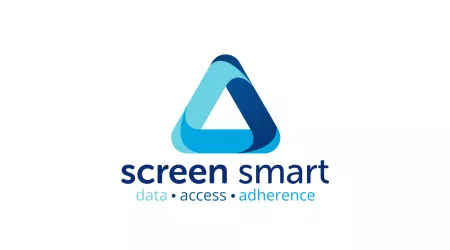Statement: Colonoscopies Prevent CRC, Despite One Study’s Headlines
This weekend, a study out of Oslo, Norway, published in the New England Journal of Medicine questioned the effectiveness of colonoscopy in preventing colorectal cancer, the second deadliest cancer in the United States. The study triggered a swell of media reports casting doubt on the procedure.
“The Alliance — supported by ample peer-reviewed research, vast professional opinion, and countless patient stories — reaffirms the lifesaving power of colonoscopies,” said Michael Sapienza, CEO of the Colorectal Cancer Alliance. “No one study from across the globe, or reckless news headlines inspired by it, should deter Americans from getting checked for colorectal cancer.”
An accompanying editorial in the Journal expressed concern that the study’s results could be misread, noting:
- In a per-protocol analysis of the study data, colonoscopy reduced colorectal cancer incidence and mortality at rates similar to other studies — 31% and 50% respectively.
- Because colorectal cancer is slow-growing, the benefits of screening take time to realize. The researchers will also conduct an analysis at the 15-year mark, which should provide a more full picture.
- The quality of colonoscopy one receives is essential. It was previously reported that a third of endoscopists participating in the study had an adenoma detection rate below standards.
Further, the study’s own authors concluded that colonoscopies work:
“In this randomized trial, the risk of colorectal cancer at 10 years was lower among participants who were invited to undergo screening colonoscopy than among those who were assigned to no screening.”
“The news coverage coming from this study is disappointing, and it should strengthen our resolve to eliminate the stigma and misunderstanding around our nation’s second deadliest cancer,” Sapienza said. “Headlines can spread like wildfire, but our unequivocal message can extinguish doubt — colonoscopies save lives.”
The United States has experienced a decline in colorectal cancer deaths coinciding with the rise of colonoscopy procedures over the last two decades. Moreover, evidence for colonoscopy’s life-saving power is borne out in multiple research studies, such as this one, this one, and this one that also appeared in the New England Journal of Medicine, among others.
The Alliance is committed to saving 100,000 lives through prevention awareness by 2029. These are loved ones — mothers, fathers, sons, and daughters — whose lives will be saved by colonoscopy and other screening methods.
“Colorectal cancer is common and deadly, but it’s also highly preventable with screening,” Sapienza said. “A colonoscopy is the most complete screening method available. A routine and safe procedure, colonoscopies have been repeatedly shown to be effective in preventing and detecting colorectal cancer. A single study cannot change these facts.”
During a colonoscopy, a doctor uses a long tube with a light and camera to detect and remove polyps — abnormal tissue growth that may develop into cancer — potentially preventing cancer. It can also find cancer in its earliest stages, when treatment is most effective. People at average risk should start getting checked at age 45, according to national guidelines.
On the heels of this weekend's news, the Alliance asks that you join us in sharing the life-saving power of colorectal cancer screening and invite you and your friends and family to take our free screening quiz, which will provide a personalized recommendation based on one’s risk factors.
About the Colorectal Cancer Alliance
The Colorectal Cancer Alliance is the largest nonprofit organization committed to ending colorectal cancer. Working with our nation of passionate allies, we diligently support the needs of patients and families, caregivers, and survivors; eagerly raise awareness of preventive screening; and continually strive to fund critical research. As allies in the struggle, we are fiercely determined to end colorectal cancer within our lifetime. For more information, visit www.colorectalcancer.org.
Top resources

National Cancer Prevention Month: Majority View Encouraging Screening as an Act of Love
Americans increasingly view colorectal cancer screening encouragement as an act of love, with new survey data showing rising openness about lifesaving prevention.

Katie Couric Joins the Colorectal Cancer Alliance To ‘LEAD FROM BEHIND’
Katie Couric joins the Colorectal Cancer Alliance and Ryan Reynolds’ Maximum Effort to expand LEAD FROM BEHIND, a star-powered campaign breaking stigma and urging lifesaving colon cancer screening. Colon cancer is the preventable cancer.

20+ Colorectal Cancer Alliance Screen Smart Partners Encourage Secretary Kennedy to Uphold USPSTF Goal to Improve Health
The Colorectal Cancer Alliance and more than 20 Screen Smart partners urge HHS Secretary Robert F. Kennedy Jr. to protect USPSTF’s evidence-based process and no-cost preventive screenings like colorectal cancer screening, which save lives and improve national health.





